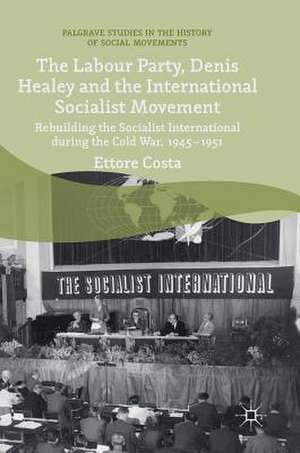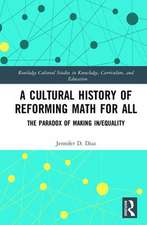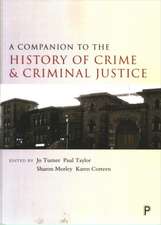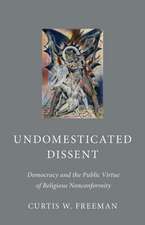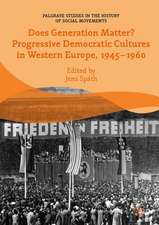The Labour Party, Denis Healey and the International Socialist Movement: Rebuilding the Socialist International during the Cold War, 1945–1951: Palgrave Studies in the History of Social Movements
Autor Ettore Costaen Limba Engleză Hardback – 6 iun 2018
| Toate formatele și edițiile | Preț | Express |
|---|---|---|
| Paperback (1) | 688.03 lei 38-44 zile | |
| Springer International Publishing – 14 dec 2018 | 688.03 lei 38-44 zile | |
| Hardback (1) | 737.12 lei 6-8 săpt. | |
| Springer International Publishing – 6 iun 2018 | 737.12 lei 6-8 săpt. |
Din seria Palgrave Studies in the History of Social Movements
- 18%
 Preț: 783.98 lei
Preț: 783.98 lei - 9%
 Preț: 833.83 lei
Preț: 833.83 lei -
 Preț: 425.20 lei
Preț: 425.20 lei -
 Preț: 385.08 lei
Preț: 385.08 lei - 18%
 Preț: 790.28 lei
Preț: 790.28 lei - 15%
 Preț: 583.93 lei
Preț: 583.93 lei - 15%
 Preț: 698.30 lei
Preț: 698.30 lei -
 Preț: 414.80 lei
Preț: 414.80 lei -
 Preț: 385.25 lei
Preț: 385.25 lei -
 Preț: 418.45 lei
Preț: 418.45 lei - 15%
 Preț: 590.63 lei
Preț: 590.63 lei - 18%
 Preț: 896.84 lei
Preț: 896.84 lei - 18%
 Preț: 735.38 lei
Preț: 735.38 lei - 18%
 Preț: 782.87 lei
Preț: 782.87 lei -
 Preț: 384.48 lei
Preț: 384.48 lei -
 Preț: 384.09 lei
Preț: 384.09 lei - 18%
 Preț: 953.03 lei
Preț: 953.03 lei - 18%
 Preț: 731.28 lei
Preț: 731.28 lei -
 Preț: 483.70 lei
Preț: 483.70 lei - 18%
 Preț: 786.04 lei
Preț: 786.04 lei -
 Preț: 451.10 lei
Preț: 451.10 lei - 15%
 Preț: 592.12 lei
Preț: 592.12 lei - 15%
 Preț: 580.49 lei
Preț: 580.49 lei - 18%
 Preț: 791.57 lei
Preț: 791.57 lei - 15%
 Preț: 710.42 lei
Preț: 710.42 lei - 18%
 Preț: 736.32 lei
Preț: 736.32 lei -
 Preț: 484.69 lei
Preț: 484.69 lei - 15%
 Preț: 705.34 lei
Preț: 705.34 lei - 18%
 Preț: 729.36 lei
Preț: 729.36 lei -
 Preț: 384.86 lei
Preț: 384.86 lei - 18%
 Preț: 954.77 lei
Preț: 954.77 lei - 15%
 Preț: 712.87 lei
Preț: 712.87 lei -
 Preț: 455.71 lei
Preț: 455.71 lei - 9%
 Preț: 700.32 lei
Preț: 700.32 lei -
 Preț: 391.61 lei
Preț: 391.61 lei
Preț: 737.12 lei
Preț vechi: 898.93 lei
-18% Nou
Puncte Express: 1106
Preț estimativ în valută:
141.06€ • 153.18$ • 118.49£
141.06€ • 153.18$ • 118.49£
Carte tipărită la comandă
Livrare economică 22 aprilie-06 mai
Preluare comenzi: 021 569.72.76
Specificații
ISBN-13: 9783319773469
ISBN-10: 3319773461
Pagini: 380
Ilustrații: XVIII, 333 p. 1 illus. in color.
Dimensiuni: 148 x 210 mm
Greutate: 0.72 kg
Ediția:1st ed. 2018
Editura: Springer International Publishing
Colecția Palgrave Macmillan
Seria Palgrave Studies in the History of Social Movements
Locul publicării:Cham, Switzerland
ISBN-10: 3319773461
Pagini: 380
Ilustrații: XVIII, 333 p. 1 illus. in color.
Dimensiuni: 148 x 210 mm
Greutate: 0.72 kg
Ediția:1st ed. 2018
Editura: Springer International Publishing
Colecția Palgrave Macmillan
Seria Palgrave Studies in the History of Social Movements
Locul publicării:Cham, Switzerland
Cuprins
Chapter 1: Introduction.- Chapter 2: From the old International to the new internationalism (1940-45).- Chapter 3: Parties and people, the Labour Party and the international socialist network.- Chapter 4: The Labour Party and Eastern Europe, social democracy behind the Iron Curtain.- Chapter 5: The Institutional Development, from the International Socialist Conference to Comisco (1946-1948).- Chapter 6: The Labour Party and Italy, social democracy below the Olive Line.- Chapter 7: ‘The little Foreign Office of Transport House’, British foreign policy and socialist internationalism.- Chapter 8: The Rebirth of the Socialist International (1948-1951).- Chapter 9: Conclusion.
Notă biografică
Ettore Costa received his PhD at the University of Rome, La Sapienza, Italy. For this research he received the Doctoral Dissertation Award and Medal of the Speaker of the Senate from Fondazione Spadolini Nuova Antologia, and the Minerva Award from Fondazione La Sapienza.
Textul de pe ultima copertă
This book describes how, after the Second World War, the Labour Party assumed leadership of the International Socialist Movement, thanks to the achievements of the Attlee Government. International Secretary Denis Healey guided the reconstruction of the Socialist International through the early Cold War, making the British vision for socialist internationalism prevail over the French and Belgian. At first, the provisional Socialist International (International Socialist Conference and Comisco) supported cohabitation with pro-communist socialists and the USSR, but with the Sovietisation of Eastern Europe it committed to militant anti-communism. Ambiguity between the Labour Party and Labour Government influenced British policy in Austria, Czechoslovakia, Greece, Italy and Poland, while the characterization and stereotypes of Eastern and Southern Europe shaped the language and actions of the British. Furthermore, the book shows how international contacts and the British and Swedish model encouraged the transition of socialist parties to responsible government parties fully embracing Western democracy and prepared the ideological revision of the 1950s.
Caracteristici
Explores the connected histories of socialist internationalism and the British Labour party in the years preceding the Cold War Charts the changing nature of the socialist parties that comprised the provisional Socialist International in 1946 up until its official rebirth in 1951 Shows how international contact and exchange between socialist parties promoted social democracy across Europe
